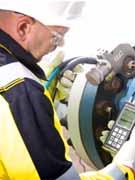This document describes the recent technology developments for simulating core shift in plastics injection molded parts and predicting injection molding machine clamp over-tonnage using Moldflow Plastics Insight (MPI). A core is the part of a mold which shapes the inside of a molded part. Core shift is the spatial deviation of the position of the core and is caused by non-uniform pressure distribution over the surface of the core during the filling and packing phases. Core shift causes wall thickness variation which results in both structural and cosmetic defects. For high precision parts, the core deflection can lead to rejects or a premature service life failure. An extension of core shift analysis is used to evaluate the performance of the part when the clamp force of an injection molding machine is exceeded. The clamp over-tonnage analysis helps to determine the change in the wall thickness of the part due to the tie-bar stretch; even injection molding flash defect can be simulated. Designers can use MPI's core shift analysis results to correct the phenomenon, by adjusting process settings or modifying the mold design as necessary, reducing the costs of design-to-manufacturing process of a part and decreasing the time to market.
Adidas Puma Shoes
LIQUISCAN VF+ Metal separator for filler applications
Add to Favorites
Source:soure2
Release Date:2014-10-24
Introduction
Popular Downloads
High Performance, High Yield Marking & Coding Systems A day in the life: Adopting a holistic approach for operations control and visibility The drive toward sustainable packaging Introducing Siemens Digital Part Production 10 Must Do's for small-to medium-sized manufacturers How Protocol Conversion Addresses IIoT Challenges Drive Controlled Pump (DCP) Solutions Tackling new food safety challenges with digital solutions Light Stabilizers Enhance Color Protection during Curing Process in Waterborne UV-curable Coatings














